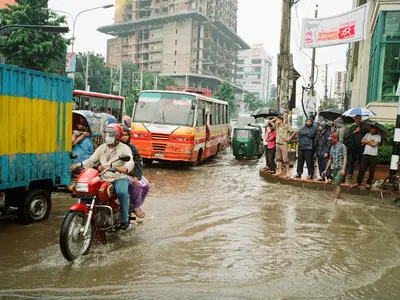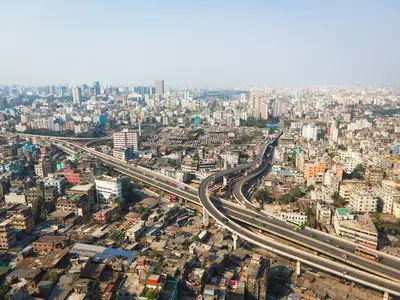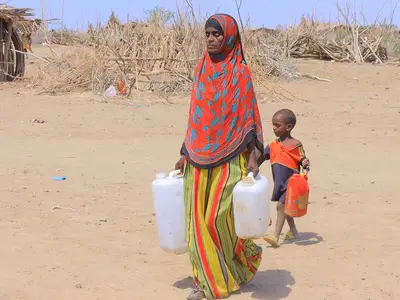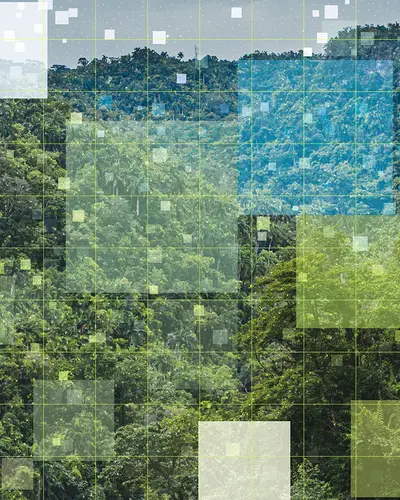Working toward sustainable and resilient cities
Cities across the globe are experiencing rapid growth. At the turn of the 20th century, only 15% of the global population lived in cities. Today, over half of the world’s population lives in cities, a figure that is expected to increase to two-thirds by 2040. The concentration of people, infrastructure, and economic activities in urban centers has heightened susceptibility in a world confronted by continuously evolving risks and hazards, whether natural or manmade.
Rapid urbanization not only strains the capacity of municipal governments to deliver essential services like solid waste management, energy, transportation, health and social services, but also poses a challenge to their ability to proactively prepare for, anticipate, and respond to various stressors and shocks.
Urban resilience seeks to strengthen the capacity of individuals, communities, institutions, businesses, and systems to absorb, recover, and prepare for future weather-related, health, economic, environment, and social stressors and shocks. Building urban resilience requires comprehensive systems-led approaches that recognize both the need for immediate action and longer-term visioning and investment.
Our Expertise in Urban Resilience
RTI solves urban challenges through an integrated approach that works to strengthen the resilience of communities, cities, and countries while addressing issues related to energy, governance, water, waste management, and air quality. Our expertise includes a combination of strategies and tools that enable evidence-based risk analysis, resilient planning, and sustainable service delivery:
- Impact Mapping and Analysis: RTI strengthened the U.S. EPA’s capacity to assess and respond to domestic climate impacts on urban areas. RTI developed indicators, mapped and analyzed data to understand the direct and indirect risks communities face from exposure to water- and air-borne pollutants resulting from projected extreme events on infrastructure.
- Strategic Urban Planning: In the Philippines, RTI strengthened the capacity of government officials to plan, design, and implement low-emission development strategies (LEDS) that contributed to the formulation of nationally appropriate mitigation actions in the power, transport, water, and land use sectors. In Thailand, Laos, and Vietnam, RTI experts are evaluating and deploying low-cost air quality sensors to fill gaps in publicly available air quality monitoring data to inform future planning and policy instruments.
- Zero Waste Cities: Since 2000, our Municipal Solid Waste Management Decision Support Tool (MSW-DST) has enabled our solid waste experts to deliver best-in-class analytical and advisory services that equip municipal leaders with the data needed to evaluate the cost and environmental aspects of integrated MSW management strategies. Leveraging RTI’s in-depth expertise in solid waste management, our experts are supporting governments and the private sector in various countries, such as India, Sri Lanka, the Maldives, and Jamaica to develop strategies aimed at reducing plastic waste entering marine environments.
- Green Building Development: RTI experts are identifying and implementing feasible and cost-effective conservation measures spanning the building, municipal lighting, and water sectors. In Abu Dhabi, we delivered technical assistance to strengthen building codes, designed maintenance protocols for air conditioning systems, and simultaneously organized a public conservation campaign and key stakeholder engagement to obtain buy-in for priority measures.
- Unlocking Municipal Finance: In Ukraine, RTI mobilized $229 million for 23 project-supported cities through Sustainable Energy Action Plans, which identified cities’ development priorities and commitments related to greenhouse gas emission reduction and energy efficiency investment.
- Disaster Ready Cities: In Bangladesh, RTI collaborated with the Capital Development Authority of the Government of Bangladesh to develop a new Urban Resilience Unit (URU). The URU has the potential to improve the resilience of 22 million lives, reduce potential fatality risks of 250,000 people, and save over $15 billion in business losses.
- Applying an Urban Resilience Lens to Public Health: For future detection of biological attacks and pandemics around the world, RTI’s technical experts are working with the U.S. military to prevent public health disasters through wearable technology. Sensors like smartwatches, bands, or rings are leveraged as data collection tools and coupled with advanced data analytics that provide real-time early detection, facilitating early action.
We bring science to city planning and operations that will lead to resilient, sustainable, and affordable urbanization.


















